Croatia
In recent years, Croatia has become a top choice for entrepreneurs and businesses. With its entry into the European Union, the country’s business scene has improved a lot. This has brought in a lot of foreign investment and created a great environment for international business growth.
Croatia offers many opportunities in tourism, eco-tourism, technology, and health and wellness. These sectors are growing because of changing consumer tastes and government support. This shows the benefits of business expansion Croatia. The country also has a skilled workforce, good infrastructure, and a growing digital economy, making it attractive for new ventures.
Croatia is well-placed in Southeast Europe, making it easy to reach the big European markets. This is great for companies wanting to grow globally. The country’s economy is growing, and its business environment is favourable, making it a top choice for entrepreneurs.
There are also big financial supports for businesses. For example, the EIB Group has given €132 million in guarantees to Erste&Steiermärkische Bank d.d. for business financing in Croatia. This support can lead to up to €280 million in new financing for Croatian Mid-Caps.
Companies like EXTEDO have seen these benefits and opened a new office in Zagreb. This move helps them expand globally and support regional life science companies better.
As Croatia grows as a hub for international business growth, the chance to expand into this market is very appealing. Now is the perfect time to look into the many opportunities and start your journey in Croatia.
Understanding the Croatian Market
To expand a business in Croatia, knowing the demographics and consumer trends is key. It helps tailor strategies to meet local needs effectively.
Demographics and Consumer Behaviour
Croatia’s diverse demographics shape consumer trends. Businesses can gain insights by understanding these trends. The growing middle class boosts demand for quality products and services.
Online shopping is becoming popular in Croatia. The European Investment Bank and European Investment Fund support micro-entrepreneurs and social enterprises. This shows a growing entrepreneurial spirit.
The EIB Group has given €132 million in guarantees to Erste&Steiermärkische Bank d.d. This helps Croatian Mid-Caps and smaller enterprises get new financing opportunities.
Key Economic Indicators
An economic analysis of Croatia is vital for planning. Indicators like GDP growth and trade dynamics show the market’s health. In 2024, Croatia’s GDP is expected to grow by 4.1%.
Exports to Germany were 2.39 billion euros from January to October 2024. Imports from Germany were 5.01 billion euros in the same period.
German investments in Croatia reached nearly 5 billion euros by mid-2024. They focus on manufacturing, renewable energy, and automotive supply chains. Siemens Energy and Končar, and Rheinmetall and DOK-ING are examples of strong partnerships.
The EU Recovery and Resilience Funds have given Croatia about 4.5 billion euros. Another 5.5 billion euros is expected by 2026. These funds will improve infrastructure and digital capabilities, creating opportunities for businesses.
Benefits of Expanding to Croatia
Expanding a business to Croatia offers many advantages. The Croatian economy is stable and growing, making it a great choice for European businesses. Let’s look at the main benefits of this strategic move.
Access to EU Markets
One big reason to expand to Croatia is the easy EU market access. Being part of the European Union, Croatia lets businesses trade freely across 27 countries. This means no customs delays or extra tariffs, making trade easier and cheaper.
Also, 78% of AmCham member companies plan to grow in Croatia in the next three years. This shows a strong interest in using EU market access.
Lower Operating Costs
Running a business in Croatia can save a lot of money. It has lower operating costs compared to many EU countries. For example, 64% of companies in AmCham Croatia did better in 2024 than before.
The corporate tax rate in Croatia is just 16.50%. Office rental and labor costs are also lower than in Western Europe. These factors make Croatia a cost-effective place for businesses.
Strategic Location in Southeast Europe
Croatia’s location is another big plus. It’s at the heart of Central and Southeast Europe, making it easy to reach the Balkans and more. This location is perfect for businesses wanting to improve their logistics and distribution.
The country’s transport network, including ports, railways, and highways, makes it a key trade hub. In fact, 61% of respondents in a survey said business conditions have improved in the last five years. This shows Croatia’s growing appeal as a business spot.
In short, expanding to Croatia is a smart move. It offers EU market access, cost savings, and a strategic location. These benefits make it a top choice for companies looking to grow in Europe.
The Business Environment in Croatia
Starting a business in Croatia means understanding a complex environment. Knowing the local rules and culture is key for success. It’s important to follow Croatian laws and appreciate the local business culture.
Regulatory Framework
Following Croatian business laws is vital when starting a business here. The Foreigners Act has changed, showing how laws can shift. Employers must have the right number of local to foreign workers.
Businesses can apply for up to 50 Residence and Work Permits for foreign staff. This number goes up based on the number of local employees. Permits for regular employees last up to three years, while seasonal ones can last nine months.
Keeping up with these rules is important for your business’s success. There’s also a special visa for digital nomads, allowing an 18-month stay.
Business Culture and Practices
The business culture in Croatia mixes old and new, shaped by its history and economy. Building strong relationships and trust with local partners is essential. Croatian business etiquette values punctuality and proper introductions.
Being aware of local customs is vital for business meetings and partnerships. Learning about these customs can greatly help your business grow. Our comprehensive guide provides more on these cultural aspects.
Recent surveys show a positive view of doing business in Croatia. 61% of people found their experience good or very good. Also, 78% of companies plan to grow locally in the next three years.
Understanding the Croatian business culture helps with teamwork and success. It’s a key factor in thriving in this market.
Starting a Business in Croatia
Starting a business in Croatia means taking several important steps. You need to pick the right business structure and go through the registration process. Also, make sure you have all the necessary licences and permits. Our guide will help you through each step.
Choosing the Right Business Structure
Choosing the right business structure is the first step in Croatia. You can choose from limited liability companies (d.o.o.), joint-stock companies (d.d.), and sole proprietorships (obrt). Each has its own benefits, so pick the one that fits your business goals.
Registration Process
The registration process in Croatia is easy thanks to systems like START. It usually takes about seven days from start to finish. You’ll need your company’s Articles of Association, proof of initial capital, and your identity documents. The court registry will then quickly process your application.
Necessary Licences and Permits
Getting the right corporate licences in Croatia is key for legal compliance. The type of licence you need depends on your business. You might need permits from the Ministry of Economy and Sustainable Development or local offices. It’s wise to get advice from local experts to meet all the rules.
In summary, being well-prepared and knowing what’s needed for company formation in Croatia can make starting a business easier. With a clear plan and focus on legal details, your business registration in Croatia can be smooth and successful.
Funding Opportunities for Businesses
Getting the right funding is key for business success, more so for Small and Medium Enterprises (SMEs) in Southeast Europe, like Croatia. It can be tough to find external funding for new ideas. But, Croatia has many chances like business grants and investment incentives to help businesses grow and compete.
Grants and Subsidies
In Croatia, there are many grants and subsidies for different businesses. The Enterprise Europe Network Consortium helps SMEs in Bosnia and Herzegovina, Croatia, Montenegro, North Macedonia, Serbia, and Slovenia. It makes finding funding easier by providing specific chances and advice.
This effort helps many areas, pushing for innovation and growth. It helps startups, established companies, and researchers. It also links them to financial helpers with various funding tools to support innovation. This helps entrepreneurs overcome financial hurdles and succeed globally.
Investment Incentives
Croatia also has big investment incentives to draw in and support businesses. These incentives are designed to boost international work and tech progress. The project team must have an innovative SME from 36 Eurostars countries and at least two other entities from these countries.
Also, each project needs a partner from an EU or Horizon Europe Associated Country. This ensures they meet European standards. The support goes to innovations in tech and green projects. This includes clean energy, energy-saving buildings, and green projects for better environmental standards.
By supporting businesses in many ways, Croatia becomes a great place for growth and innovation. The mix of business grants and investment incentives in Croatia is a strong base for economic growth and business success in the area.
Hiring Employees in Croatia
To hire in Croatia, it’s key to know the local labour market. The country’s workforce is varied, with both local and international talent. In 2024, Croatia saw a 22% rise in work permit applications, reaching 286,000. Of these, 206,529 permits were granted, mainly to people from Bosnia and Herzegovina, Nepal, Serbia, India, and the Philippines. Now, work permits are valid for up to three years, up from one year before.
Labour Market Overview
Croatia’s labour market is strong, with a good balance of skilled and semi-skilled workers. This is shown by the number of work permits issued to various nationalities. Seasonal permits have also been extended to nine months, helping businesses with temporary needs.
Companies must meet new rules to hire foreign workers. They need to employ at least one Croatian for a year, have a minimum turnover of €10,000, and pay all taxes. Starting January 1, 2026, companies not following these rules will be banned from hiring foreigners.
Navigating Employment Laws
Dealing with Croatia’s employment laws can be tricky but is essential for smooth operations. There’s more focus on visa compliance for both short and long-term residents. Employers must follow strict rules for work permits to avoid legal issues.
The European Travel Information and Authorisation System (ETIAS) will soon require pre-authorisation for non-EU visitors. This affects workforce mobility. Employers also need to remember the new income rules for visas, like the Digital Nomad Visa, which requires a minimum of €2,539.21 monthly.
Grasping these changes is vital for successful hiring and smooth operations in Croatia’s changing rules.
Taxation in Croatia
It’s key to know about taxes in Croatia if you’re starting a business there. Understanding corporate tax Croatia and VAT Croatia is vital for your finances. Let’s explore these taxes in detail.
Corporate Tax Rates
Croatia has a good corporate tax rate. Companies with over HRK 7.5 million in revenue pay 18% tax. Smaller businesses pay 12%. This makes Croatia a great place for businesses to invest.
In 2023, the EU’s tax income was EUR 6,711 billion, up 4.7% from 2022. But, taxes as a share of GDP fell to 39.0% in 2023. In Croatia, corporate tax is a big part of the national income, thanks to growing profits.
Value Added Tax (VAT)
VAT is a key tax in Croatia. The standard VAT rate is 25%, one of the EU’s highest. But, there are lower rates for some goods and services. For example, food and newspapers have a 13% VAT, while medical items and some publications have a 5% rate.
VAT income grew slowly in 2023, at 2.5%. But, VAT’s share of total taxes fell from 27.6% in 2022 to 26.9% in 2023. This shows changes in the economy.
It’s vital to follow corporate tax Croatia and VAT Croatia rules for your business. This ensures you stay compliant and use your money wisely. As EU tax rules change, keeping up with these updates is more important than ever. The next big report on taxes in 2025 will likely bring new insights and changes.
Cultural Considerations When Doing Business
It’s key to understand and fit into Croatian cultural norms for business success. Entrepreneurs need to grasp Croatian business etiquette. They must also build strong relationships with local partners and clients.
Understanding Local Customs
In Croatia, knowing local customs is essential. Croatians prefer face-to-face talks and value personal connections. They often start business meetings with some casual chat.
This helps build trust and deepens cultural understanding. Also, being on time is very important. Showing up late can harm your reputation.
Building Relationships with Croatians
Building trust and respect is the foundation of business relationships in Croatia. Networking and personal connections are key. For example, eating together helps form bonds.
This approach allows for deeper conversations. It helps understand each other’s business goals and values.
Knowing Croatian business etiquette can make a big difference. Success in Croatia mixes local customs with business strategies. For more tips, check out our guide on doing business in Croatia.
Networking Opportunities in Croatia
Croatia is great for entrepreneurs wanting to grow their businesses. It has a good location, improving infrastructure, and government support. We look at how to connect and join the Croatian business world.
Business Associations and Chambers of Commerce
Joining business associations in Croatia is very helpful. The Croatian Chamber of Economy (CCE) helps local businesses connect. The Croatian Employers’ Association (HUP) also offers support for expanding businesses.
The Business Networking and Exchange program is key. It links people, entrepreneurs, and companies in Croatia and the UAE. This helps with working together across borders.
This program gives special access to networking events. You can attend business breakfasts, roundtable talks, and matchmaking. It aims to build a community for lasting relationships, not just deals.
Industry-Specific Events
Going to industry events Croatia is vital for keeping up. Trade fairs, exhibitions, and business expos are great for meeting leaders. For example, the EAP Spring Meeting 2025 in Dubrovnik will be a big chance for networking.
The meeting will have sessions on big topics like climate change and digital innovation in kids’ health. It’s a chance to share ideas, trends, and best practices. This helps innovation and growth in the industry.
Members can also join trade fairs in the UAE and Croatia. This boosts visibility and impact in new markets. Marktlink’s new office in Zagreb shows the chance for deals in this growing economy.
The social part of the EAP Spring Meeting will highlight Dubrovnik’s history. There will be tours and meals to help people relax and network.
Marketing in the Croatian Market
Entering the Croatian market is a great chance for businesses to grow. They can use smart marketing strategies. Knowing what locals like and the latest digital trends helps a lot.
Effective Strategies for Promotion
Marketing in Croatia needs a special touch. Research shows that businesses can do well by:
- Localisation: Making products and services fit local tastes is key. For example, EXTEDO set up a Croatian branch to better serve the life science sector.
- Partnership and Collaborations: Working with local groups can help get into the market better. JGL Group, a big Croatian pharma, grew 20% thanks to good partnerships.
- Cultural Sensitivity: Knowing Croatia’s culture helps brands connect better. Campaigns should reflect local values.
Digital Marketing Trends
Digital marketing in Croatia is very important. The latest trends include:
- Social Media Marketing: Using Facebook, Instagram, and LinkedIn can reach many people.
- Content Marketing: Good, local content keeps people interested and loyal. JGL Pharma’s revenue went up 21% with the right content.
- Search Engine Optimisation (SEO): Good SEO, like using marketing strategies Croatia, is key for online visibility.
By using these marketing strategies, businesses can improve their online presence and grow a lot.
Challenges of Expanding to Croatia
Starting a business in Croatia comes with its own set of challenges. Language barriers and dealing with local bureaucracy are big ones. Knowing about these obstacles is key to a smooth transition.
Language Barriers
Many Croatians speak English, but not all. This can make marketing and daily tasks tricky. To solve this, companies might hire locals or train staff in Croatian and English.
Getting local help or using translation services can also help. This way, businesses can communicate better and run smoothly.
Bureaucratic Hurdles
The Croatian bureaucracy can be overwhelming for newcomers. It involves a lot of rules, permits, and paperwork. This can slow things down and cost more.
Getting a local expert to help can make a big difference. They know the system well and can guide you through it. This way, you can get your business up and running faster.
But there’s more to think about than just these challenges. The economic situation and how businesses work together are also important. For example, trade between Ireland and Croatia is growing. This shows there’s a lot of opportunity, even with the challenges.
Case Studies of Successful Businesses in Croatia
Croatia’s business scene is filled with success stories. These stories show the growth and innovation possible. We look at some of these stories to learn what makes them tick.
Local Success Stories
KONČAR Group leads in Croatian electrical equipment. They’ve embraced Industry 4.0, using advanced tech to boost efficiency. This makes them a top example of success in Croatia, showing tech’s key role.
Pliva, a big name in pharma, is another success story. With 90 years of experience, they’ve grown through innovation. Their focus on improvement and global standards has made them a standout.
Lessons Learned from Expansions
Success in Croatia teaches us a lot. One key lesson is the importance of following rules. KONČAR and Pliva show how sticking to regulations helps their businesses thrive.
Another lesson is the need for a smart business plan. SAP’s five-stage process helps businesses transform. It involves understanding current processes, analyzing data, and planning for the future.
Also, using the latest tech is key. Companies like Regeneron use cloud services and AI to stay ahead. This shows how important innovation is.
Lastly, investing in employee skills is vital. Regeneron’s training programs improve staff skills and drive growth. This shows the importance of continuous learning.
In short, Croatia’s success stories offer valuable lessons. By following rules, planning well, using new tech, and training staff, businesses can achieve great things here.
Tips for Navigating Croatian Regulations
When you expand your business to Croatia, knowing the rules is key. Following local laws and EU rules helps your business run smoothly. It also keeps legal troubles away. Let’s look at the main areas of regulation you need to know.
Import and Export Regulations
Croatia’s rules for bringing in and sending out goods follow EU standards. Companies must follow strict customs rules. This makes sure all goods are safe and meet quality standards.
Using the Market Access and Support program is a good idea. It helps with customs rules and logistics. The program also gives you market research reports to guide your choices.
It also sets up trade missions and business delegations. These events help you meet important people and partners. You’ll get help with the tricky parts of following Croatian rules. For more on starting a business in Croatia, check out the guide on doing business in Croatia.
Compliance with EU Directives
As an EU member, Croatia follows many EU rules. These rules affect things like the environment, consumer rights, and data privacy. It’s very important to follow these rules to stay in line with Croatian law.
Our program helps you follow these rules step by step. It offers training and advice on managing risks. After you start doing business, you’ll get ongoing help. This includes advice, mentorship, and updates on market trends.
By following these rules and directives, your business can grow and stay safe. Being proactive with regulation helps your business run well. It also sets you up for success in Croatia and across Europe.
Future Economic Trends in Croatia
The future of Croatia’s economy looks bright for businesses and investors. We’ll explore growth industries and forecasts that will shape our plans. This will help us make smart decisions.
Emerging Industries
Tourism is a big player in Croatia’s economy, thanks to its beauty and culture. The number of international property sales went up by 25.9% in 2023. This shows Croatia is becoming more popular for tourists and investors.
Other new areas include eco-friendly projects in places like Istria. These are expected to grow in demand. Investors can look forward to earning 8-10% each year, thanks to tourists.
Forecasts for Business Growth
Looking ahead, Croatia’s economy is set to grow, with a focus on property and tourism. In 2024, places like Dubrovnik had over 4,500 Airbnb listings. These were filled 62% of the time, showing strong demand for places to stay.
The country’s link to the EU and its location in Southeast Europe offer more chances. By 2025, interest rates in Europe might drop, helping Croatian investments. The government is also supporting the housing market with tax breaks for energy-efficient homes.
In summary, Croatia’s economy is set for growth. By focusing on new sectors, we can take advantage of this exciting market.
Resources for Further Information
If you’re thinking of growing your business in Croatia, having the right information is key. The Croatian government resources and industry research Croatia are great for making smart choices. Here are some top resources to help you get started:
Government Agencies
There are many Croatian government resources that can help you a lot:
- Ministry of Economy and Sustainable Development: They have lots of info on business rules and economic help.
- Croatian Chamber of Economy: They offer specific help for different industries and areas.
- Croatian Trade and Investment Agency (HGK): They help foreign investors understand the Croatian market.
Industry Reports and Publications
It’s also important to have access to detailed industry reports. Many publications can help you understand the Croatian market better. They use data from industry research Croatia:
- Eurostat: They have stats on different sectors in Croatia and compare them to the EU.
- MarketLine: They do deep market analysis, including SWOT analysis and trends for Croatia.
- World Bank Reports: These reports cover economic indicators and growth forecasts for Croatia.
Also, knowing about Croatia’s demographics is useful. For example, over 1.7 million people live in rural areas, making up 42.5% of the population. Staying updated with these reliable sources will help you understand the Croatian business scene better.
Conclusion: Taking the Next Steps
Starting a business in Croatia is a big step but doable. First, make a detailed business plan that fits the Croatian market. This plan should cover customer details, competition, and how to run the business.
Doing deep market research is key. It helps us see both the chances and hurdles in the Croatian market. We also need to think ahead and plan for any obstacles.
Creating a Business Plan
Our business plan must be based on solid market research. Use data from the Global Entrepreneurship Monitor (GEM) to guide us. It shows there are chances but also a fear of failure.
For example, fewer people see starting a business as a good idea now. But more fear failure. We should plan carefully to overcome these fears and use the market’s strengths. For tips on a good business plan, check out LerriHost and other trusted sites.
Engaging Local Experts
Working with local experts in Croatia is very helpful. They know the market well and can share practical tips. Their advice is key for success, whether it’s understanding laws or making local connections.
Local consultancy is very important. It helps us navigate the changing business and legal scene. For detailed advice, talk to international business planning experts, as suggested by 30Countries.
By planning carefully and using local consultants, we can smoothly enter Croatia’s growing market. This way, we lower risks and increase chances for lasting growth and success.

Pros and Cons of Expanding Your Business to Croatia
Explore the benefits and drawbacks of expanding your business to Croatia and make an informed decision for your company's growth.
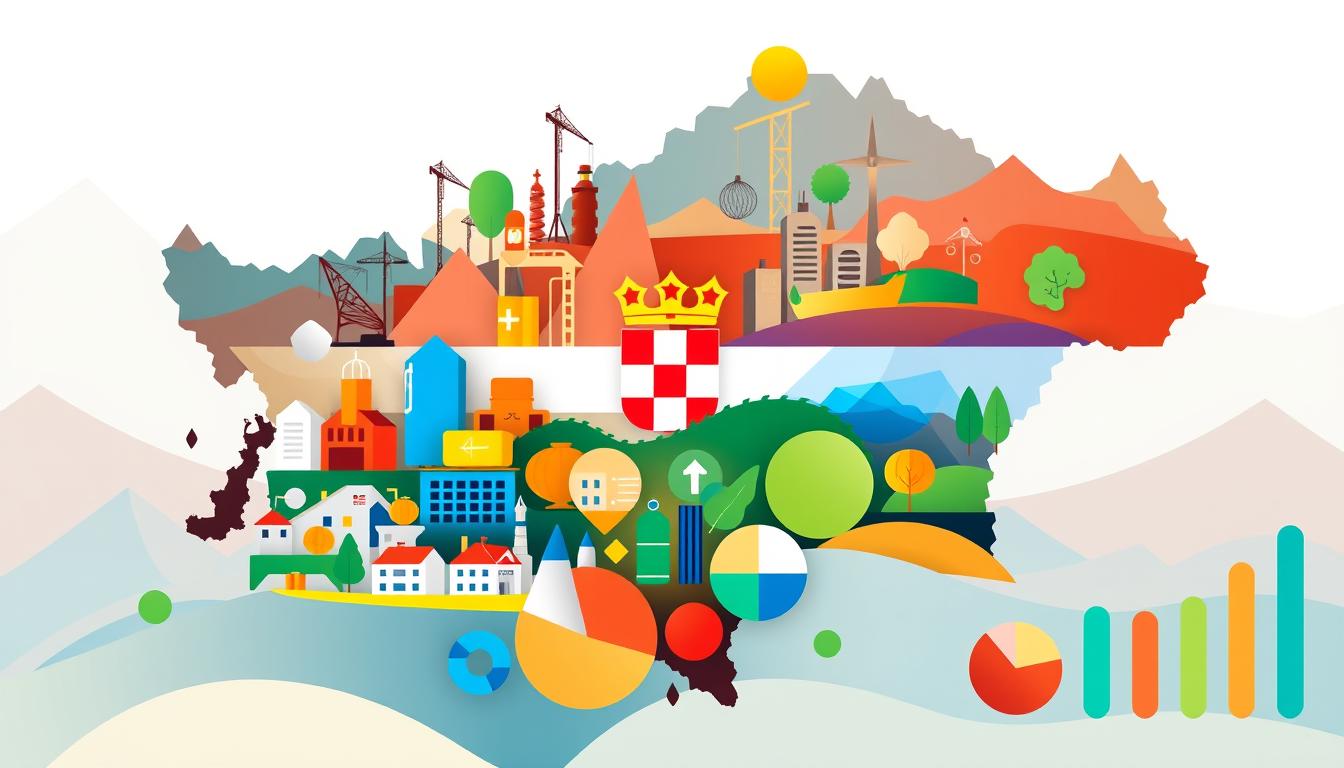
Structural business statistics in Croatia
Understanding Structural Business Statistics (SBS) is key to grasping Croatia’s economic scene. SBS gives us vital insights into how businesses ...
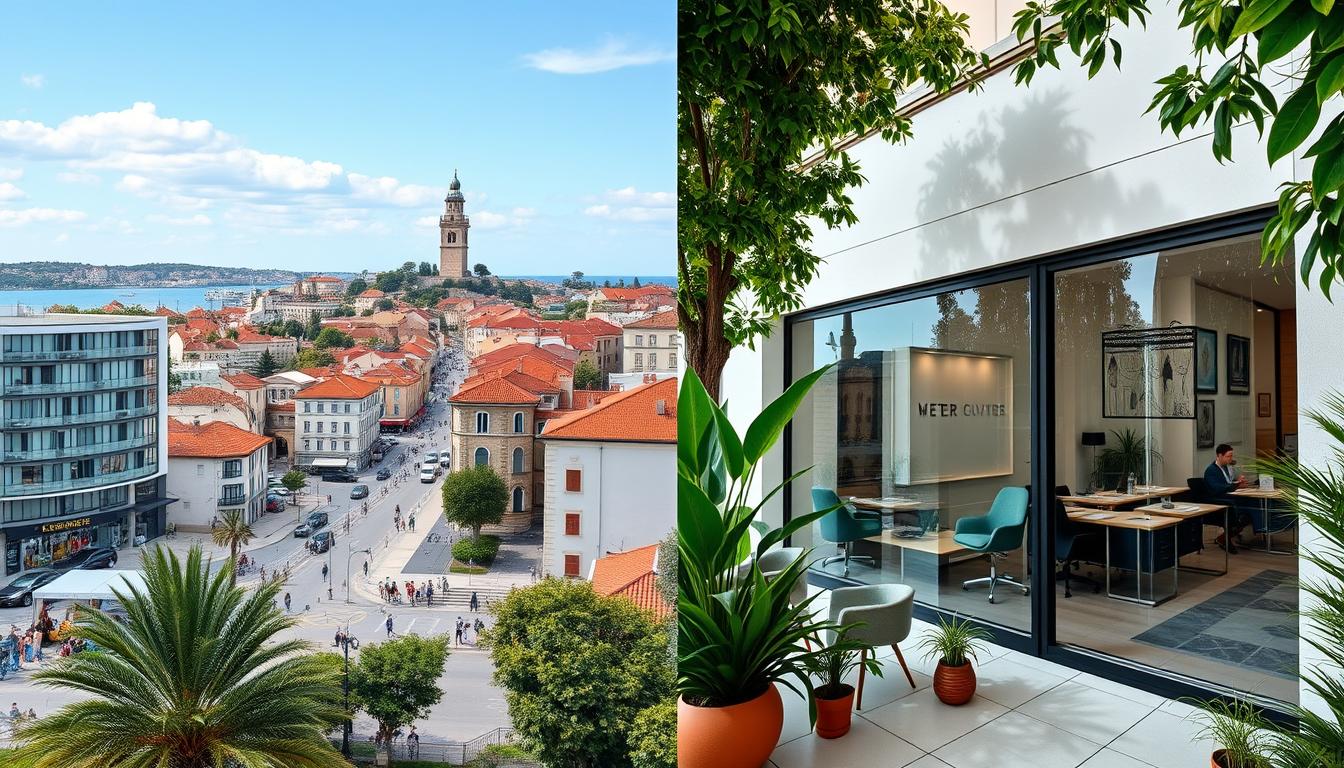
Branch vs Subsidiary: Starting a Business in Croatia
When we think about launching a business in Croatia, it’s vital to look at different business forms. Choosing between a ...
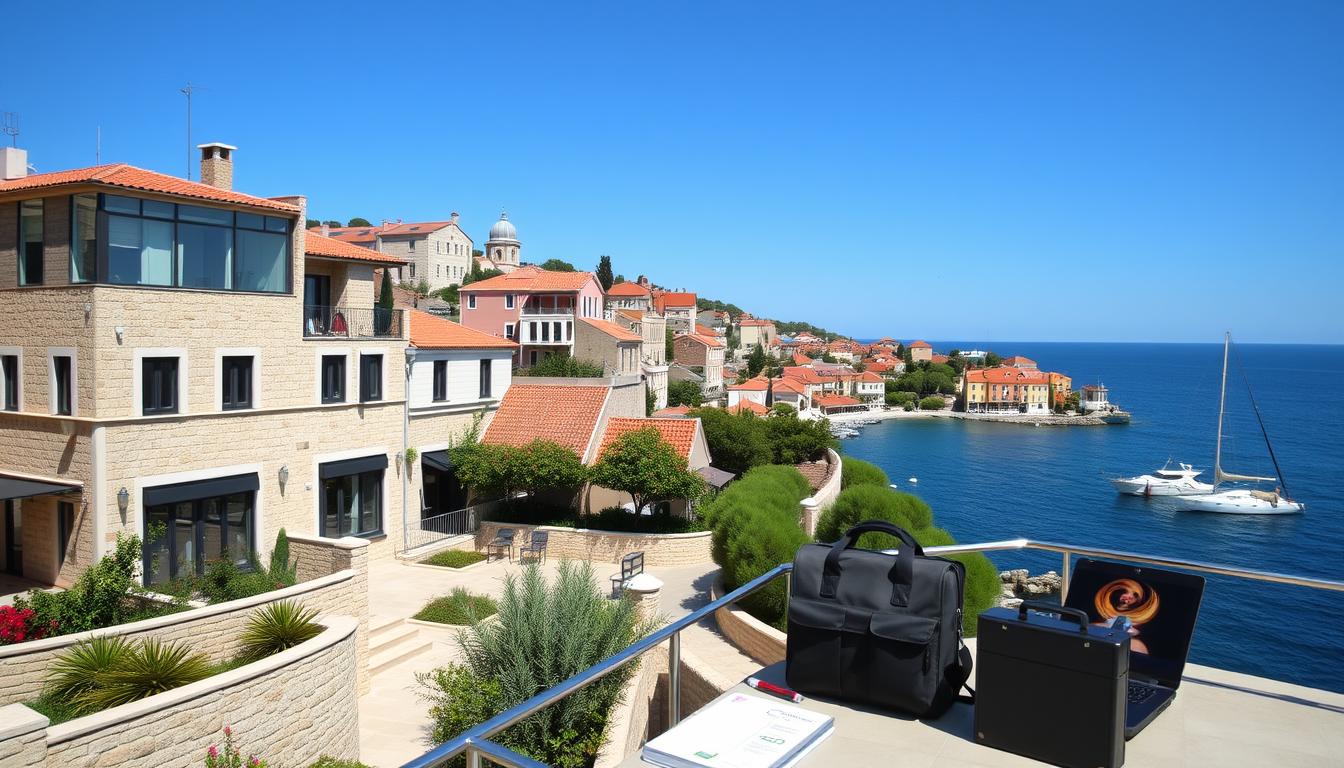
Relocating to Croatia for business
Explore the benefits of relocating to Croatia for business and the thriving opportunities that await in this dynamic market.
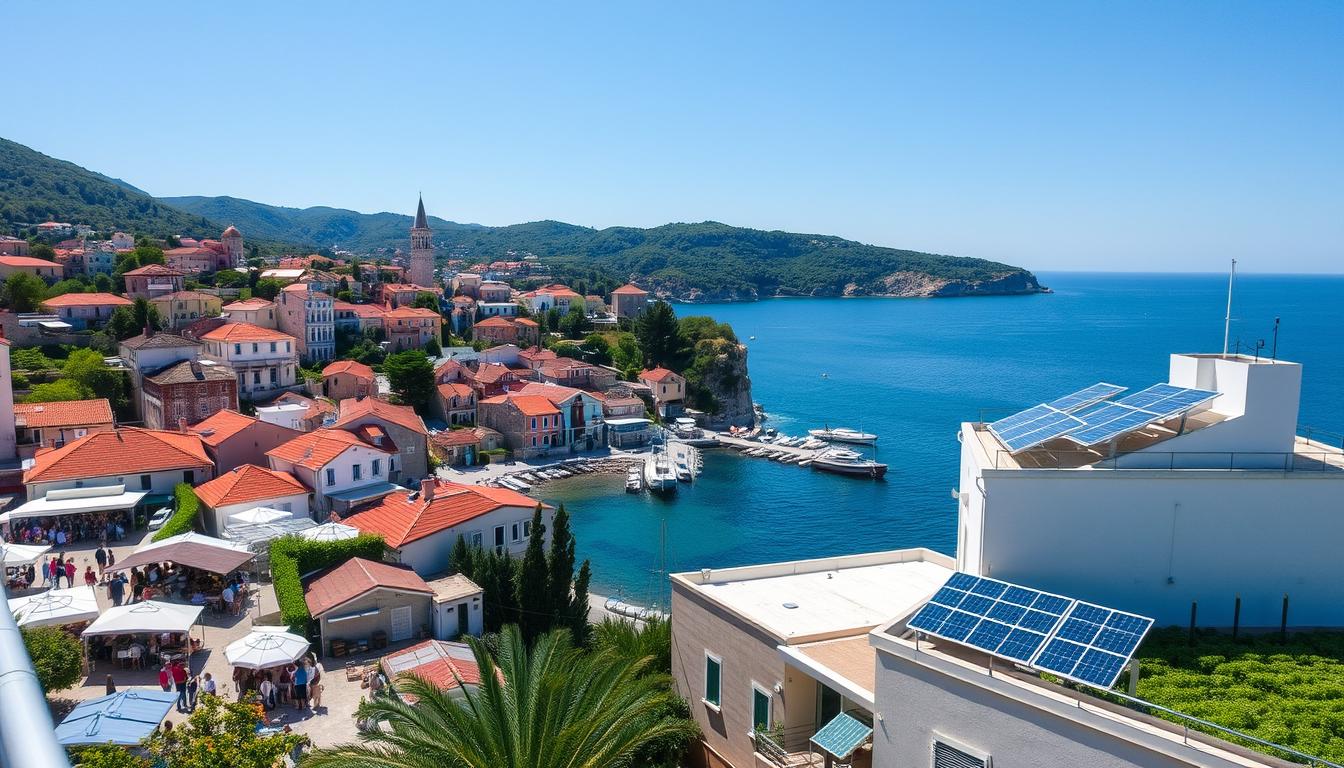
Lucrative Business Ideas to Launch in Croatia
Explore top business ideas to start in Croatia with our guide on lucrative opportunities for UK entrepreneurs seeking growth abroad.

Understanding Business Culture in Croatia
Explore the nuances of business culture in Croatia to navigate corporate etiquette and build successful partnerships in this Mediterranean market.
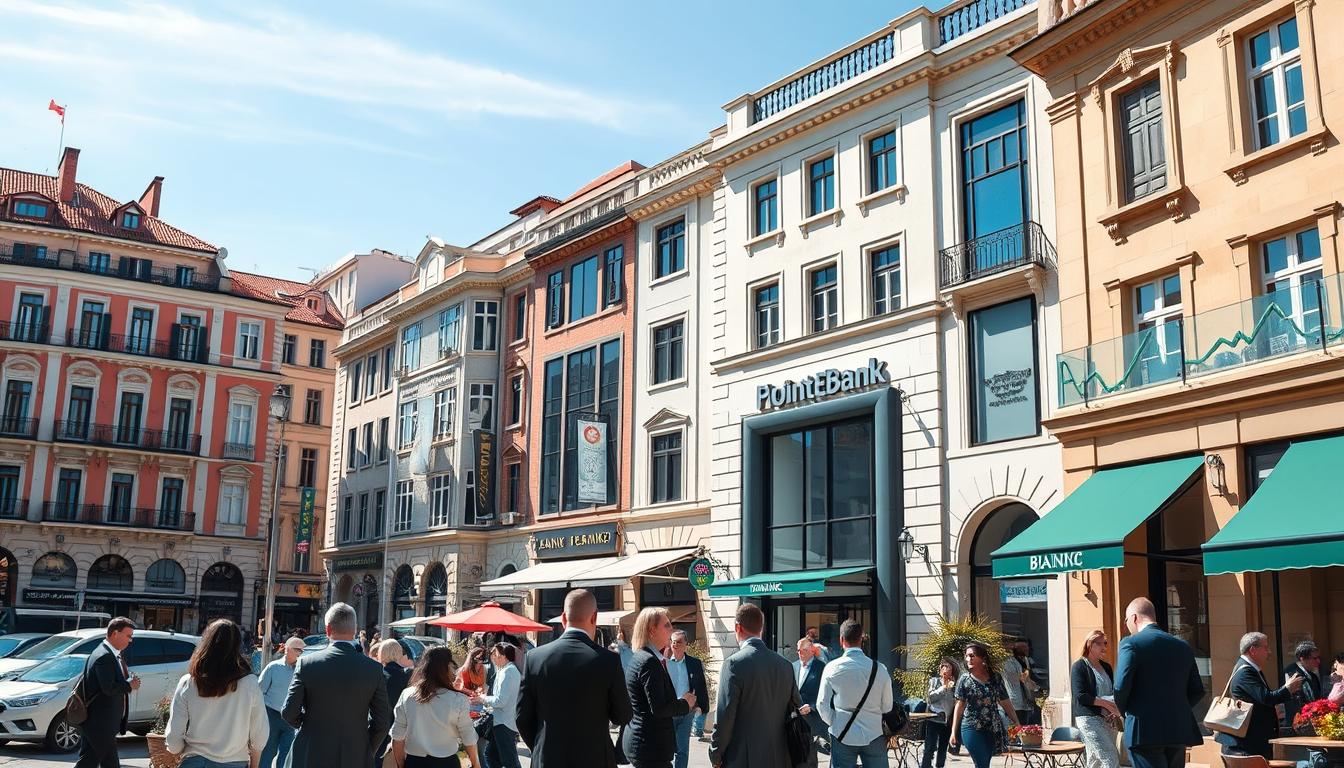
Exploring Business Banking in Croatia Opportunities
Unlock the potential of Business Banking in Croatia with tailored solutions for UK enterprises looking to expand.
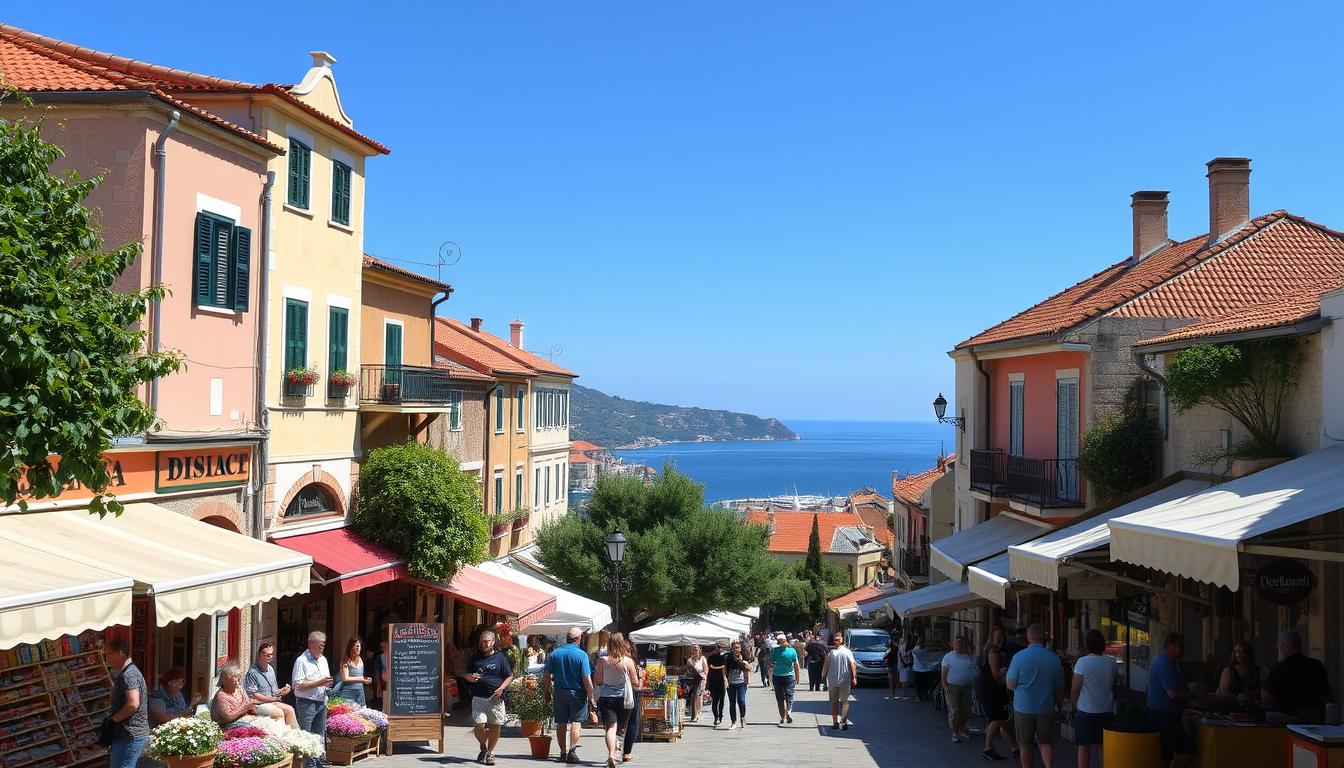
Doing Business in Croatia: A Friendly Guide
Explore essential insights for Doing Business in Croatia with our comprehensive guide. Navigate legalities, culture, and market trends.
